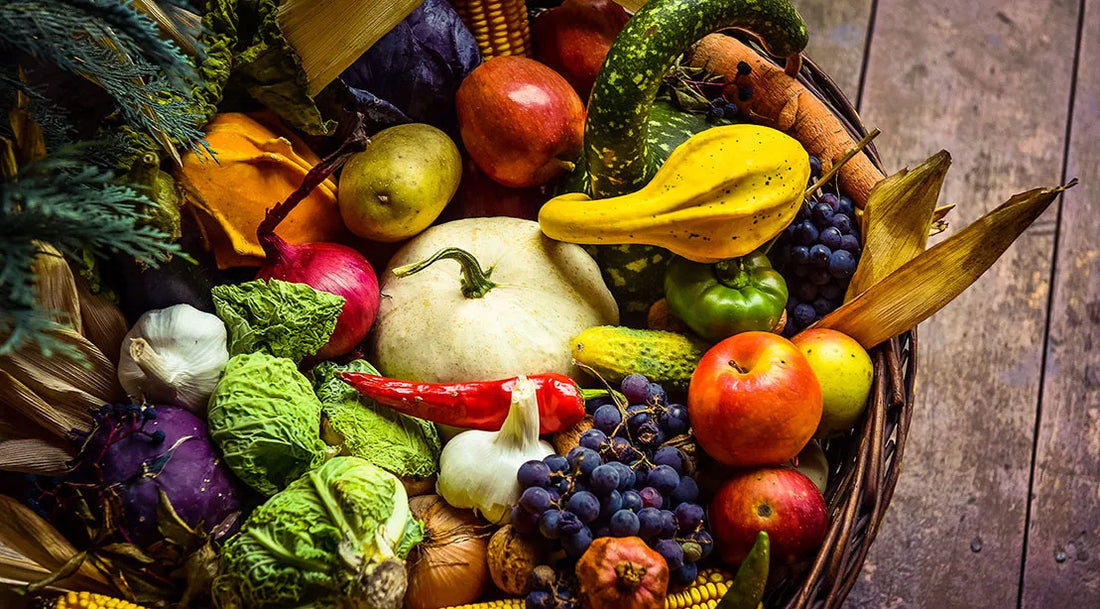
Transitioning Your Diet: Embrace Autumn/Winter with Healthy Eating
Share
As summer fades into autumn and the leaves begin to change, you should try adapting your diet to the new season. Different seasonal produce is available in the colder months, making it the perfect opportunity to embrace hearty, nourishing foods. This post explores how you can adjust your diet for the colder months to stay healthy and energised.
1. Incorporate Seasonal Produce:
Autumn and winter offer a wide variety of seasonal fruits and vegetables like apples, pears, pumpkins, sweet potatoes, and the dreaded Brussels sprouts. These foods are not only delicious but also packed with essential nutrients to boost your immune system and keep you satisfied.
2. Embrace Hearty Soups and Stews:
As the weather cools down, warm up with homemade soups and stews. Use ingredients like root vegetables, beans, and lentils to create nutritious and filling meals. These dishes are not only comforting but also provide ample vitamins and minerals.
3. Try Whole Grains:
Try swapping out refined and bleached grains for whole grains like quinoa, brown rice, and oats. They provide a steady release of energy throughout the day and keep you feeling full longer. Incorporate them into dishes like porridge, grain bowls, and whole-grain bread.
4. Boost Immunity with Superfoods:
Strengthen your immune system with superfoods like garlic, ginger, and turmeric. These ingredients have natural immune-boosting properties and can be added to soups, teas, or as seasonings for various dishes.
5. Stay Hydrated with Herbal Teas:
While it's essential to drink water year-round, consider adding in herbal teas during the colder months. Options like chamomile, ginger, and cinnamon not only keep you hydrated but also provide additional health benefits.
6. Moderate Comfort Foods:
While indulging in comforting treats like hot chocolate or baked goods comes hand in hand as part of the autumn/winter experience choose to opt for healthier versions of your favorite treats by reducing sugar and using whole ingredients.
7. Prioritise Vitamin D:
With fewer daylight hours, it's crucial to ensure you're getting enough vitamin D. You can get this from foods including fatty fish (salmon, mackerel), fortified dairy or plant-based milk, and mushrooms in your diet.
8. Maintain a Balanced Diet:
Be sure to include a variety of fruits, vegetables, lean proteins, and healthy fats in your meals to meet your nutritional needs.
As we transition from summer to autumn and winter, adjusting your diet to embrace seasonal foods and nourishing options is a smart choice for your overall health and well-being. By incorporating a few of these dietary changes, you'll not only stay energised but also boost your immunity to ward off those annoying seasonal illnesses.